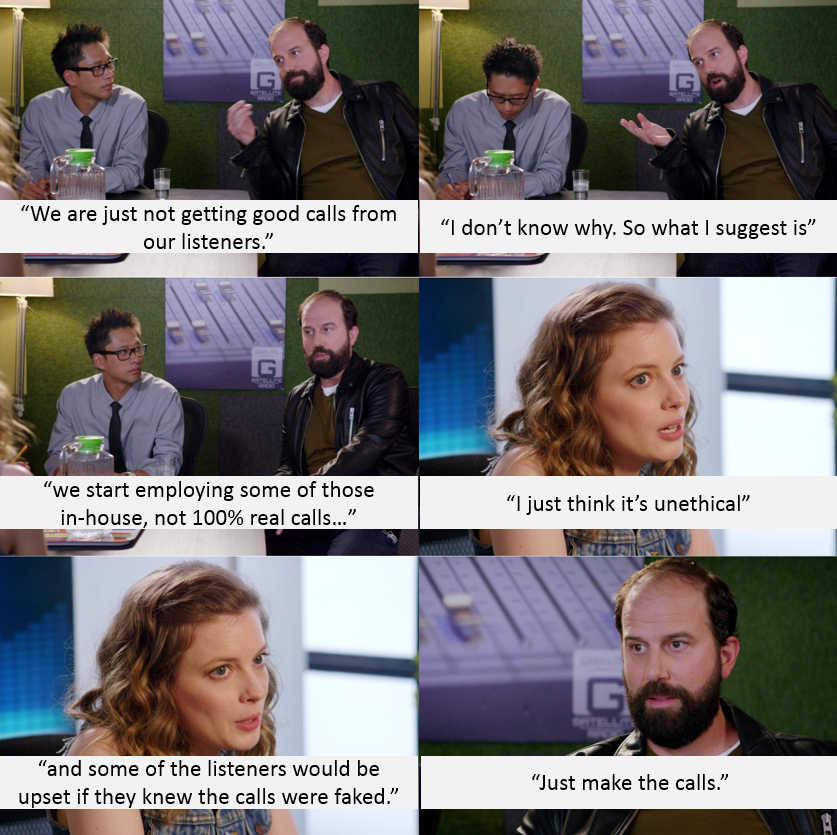Not All is Fair in Love and Ethics

It is a common misconception that ethical dilemmas are always black or white, do or do not, scenarios. In reality, many ethical dilemmas lie in the gray area – protocols are not clearly defined and individuals struggle with what the right thing to do is.
This month, Netflix premiered a new original series: Love. One of the main characters, Mickey Dobbs, confronted an immediate superior based on a decision she did not agree with (see above slides). Although not all ethical dilemmas are as blatant as what Dobbs experienced, studies show these situations occur at every level of an organization and Dobbs’ case is a great example of that. To recap the episode (without giving away any spoilers), Dobbs is a midlevel employee at a local radio station in Los Angeles, CA. When her boss singled her out during a staff meeting, Dobbs courageously disagreed with the unethical proposition. She believed the authenticity of the calls was the most important part of the radio show. The boss explained that even if the calls are not real, the advice given was real, which did not make his request unethical.
Our conflicted main character sought advice from a trusted coworker. However, the coworker did not feel as strongly about the dilemma as Dobbs did and reminded her of past employees who were fired after disagreeing with what their boss requested. The seemingly simple ethical dilemma slowly snowballed into a greater issue. Will Dobbs lose her job because she stood up for what she believed to be correct?
Dobbs is one of many employees who find themselves staring at the face of an ethical situation. Millions of dollars are not at stake, nor are multiple people’s job security. But, this young woman’s integrity and potentially her job are on the line. It’s important to understand that not all ethical dilemmas are created equal, which is why they are sometimes hard to identify. Mickey did not have the support of an ethical culture or the support of any immediate superior. Also, it is not clear whether or not the radio station had a written code of ethics for her to refer to.
When you find yourself interviewing for a new job, it is important to familiarize yourself with the company culture and available resources. Do not be embarrassed to ask about their ethics policy or code of conduct. If they do not believe ethics is a high priority, you may want to rethink whether or not you want to invest your time and energy into working for that organization. After all, do you want to land in a sticky situation like Dobbs?
For more information about code of ethics feel free to contact us at [email protected].
— Alexia Kammer
Business Development Specialist, NASBA Center for the Public Trust




